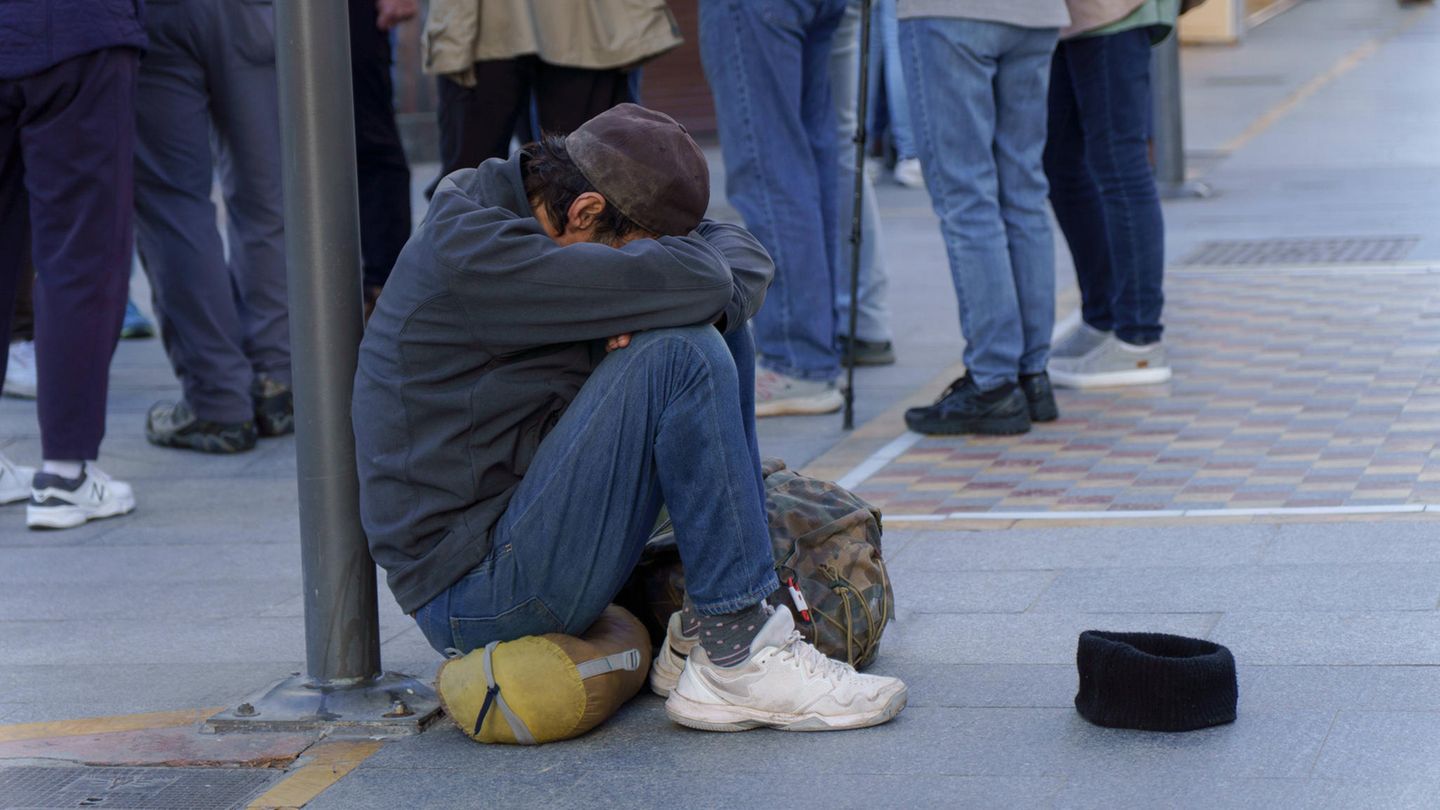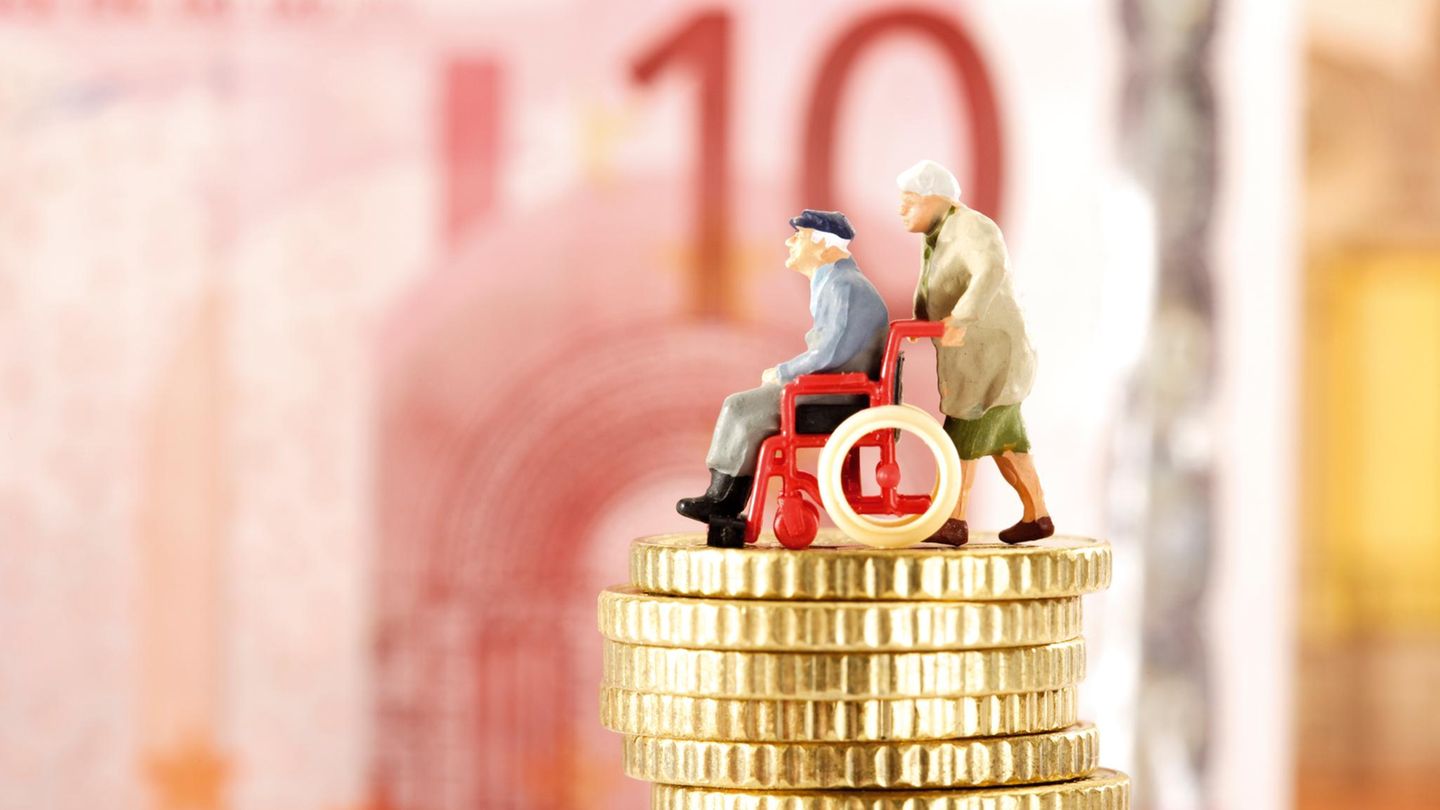More and more people in Germany are suffering from being alone and feeling lonely. This is shown by the first long-term study by the Federal Ministry for Family Affairs. The collective isolation is to everyone’s detriment.
Two football fans of Norwich City Football Club are sitting next to each other in the stadium. Two grown men, as the saying goes. For several games in a row, the fan on the right has been aggressively addressing the one on the left, cheering euphorically or loudly expressing his anger at his club. The fan on the left appears withdrawn, quieter, struggling with his emotions.
At the end of the 2.5 minute session, one seat remains empty – the right one.
The English football club released the video on World Mental Health Day with the message: You are not alone.
Loneliness is often not obvious. But in industrialized nations, and especially in Germany, an increasing number of people are affected by this feeling. This is shown by the “Loneliness Barometer”, a long-term analysis whose results Federal Minister for Family Affairs Lisa Paus has now presented. The latest data from the study are from 2021 and show the development in Germany over the past 30 years.
About one in eight women and one in ten men feel socially isolated. During the corona pandemic, more people suffered from loneliness than usual, which particularly affected older people over 75 years of age (22.8 percent) – and a shocking number of young adults between the ages of 18 and 29 (31.8 percent).
One should differentiate between loneliness and being alone, which can be perceived as positive. “Loneliness becomes problematic when the feeling of loneliness becomes permanent and is accompanied by permanent suffering,” writes the .
Loneliness is measurable and causes physical pain, neurological studies show. “Experiences of social exclusion activate similar regions of the brain as those activated by pain stimuli,” explains stress researcher and psychotherapist Mazda Adli in the “Wissen Weekly” podcast. And it has a negative impact on almost all areas of life and society. That’s why it’s so important to counteract the increasing feeling of loneliness.
Loneliness shortens life
Perceived or actual social isolation has an impact on health. It can trigger or exacerbate mental illnesses such as depression or suicidality and can lead to sleep problems. People who feel alone experience stress, which can permanently lead to immune deficiency or cardiovascular disease. This can shorten life expectancy and has just as strong an impact as smoking or being very overweight. Loneliness is “associated with an up to 50 percent increased risk of death,” said the .
Loneliness harms the economy
Loneliness is bad for your health – and treating the resulting illnesses costs the health sector money. In addition, the proportion of people taking early retirement due to psychological stress is increasing significantly.
Loneliness reinforces existing injustices
The studies conducted by the Federal Ministry for Family Affairs show that social isolation and its negative consequences affect the people who are already marginalized and discriminated against the most. Single parents, the unemployed, the low-skilled, the chronically ill and people with migration and refugee experience are disproportionately affected by loneliness. This pushes those who are already too often overlooked even further to the margins of society.
Loneliness has a gender gap
Women in Germany earn less and receive a smaller pension in old age ( & ). They receive less medical care () and spend an above-average amount of time on care work such as housework, raising children or looking after relatives. All of these are potential risk factors for feeling lonely, which is why the Loneliness Barometer speaks of a “gender loneliness gap”. This widens the gender gap in Germany.
Those who are lonely trust democracy less
The “widespread disease” of loneliness, as the report calls it, is damaging democracy. The data shows that people who feel socially isolated have less trust in institutions such as the police, parliaments and the judiciary. Lonely people are more likely to believe in conspiracy theories than sociable people (25.1 versus 16.3 percent), they believe less in political parties and are less likely to vote. It is therefore in the very spirit of democracy in Germany to look after its citizens.
Sources: , s “”,
Source: Stern
I’m Caroline, a journalist and author for 24 Hours Worlds. I specialize in health-related news and stories, bringing real-world impact to readers across the globe. With my experience in journalism and writing in both print and online formats, I strive to provide reliable information that resonates with audiences from all walks of life.




